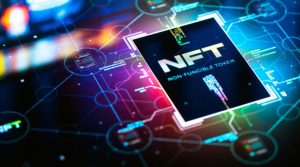Sports memorabilia has always been a popular collectible among fans, with items such as autographed jerseys, game-worn equipment, and trading cards commanding high prices at auctions and in the secondary market. However, the emergence of non-fungible tokens (NFTs) is revolutionizing the way we collect sports memorabilia. In this article, we will explore how NFTs are changing the sports memorabilia market and why they are attracting so much attention from fans and collectors alike.
NFTs in Sports
NFTs are digital assets that are stored on a blockchain, which makes them unique, transparent, and secure. In the context of sports memorabilia, NFTs can be used to represent digital collectibles such as game highlights, trading cards, and even virtual stadium seats. The ownership and authenticity of these assets are verified and recorded on the blockchain, which provides a level of trust and transparency that was previously not possible in the world of sports memorabilia.
Athletes and teams have also embraced NFTs as a new way to engage with fans and generate revenue. For example, in April 2021, the NBA launched NBA Top Shot, an NFT platform where fans can buy, sell, and trade “moments” from NBA games. These moments are short video clips of iconic plays, such as a game-winning shot or a dunk over a defender. NBA Top Shot has become wildly popular, with some moments selling for thousands of dollars.
Virtual Trading Cards
One of the most popular uses of NFTs in sports is the creation of virtual trading cards. These cards are similar to traditional trading cards, but instead of being physical, they are digital assets that are stored on a blockchain. They can feature images of athletes, game stats, and other information that fans and collectors find valuable. Because they are unique, they can be traded and sold just like physical trading cards, but with the added benefit of being easily accessible and transparent.
NFT trading cards have become increasingly popular among sports fans and collectors. In June 2021, NBA Top Shot, a platform that allows fans to collect and trade NFT trading cards featuring highlights from NBA games, reached $700 million in sales. This is a testament to the growing interest in NFT sports memorabilia and the potential for NFTs to transform the way we collect and engage with sports.
Virtual Stadium Seats
Another potential use of NFTs in sports memorabilia is the creation of virtual stadium seats. As more sports events move online and fans are unable to attend games in person, virtual stadium seats provide a way for fans to experience the game in a new and unique way. By using NFTs to represent virtual seats, fans can own a piece of the game and potentially even gain special access to exclusive events or experiences.
Benefits of NFTs for Sports Memorabilia
NFTs offer several benefits for sports memorabilia collectors and the sports industry as a whole. One of the biggest advantages is that NFTs provide a more secure and transparent way to verify the authenticity of sports memorabilia. With traditional memorabilia, it can be difficult to determine whether an item is genuine or fake. NFTs, on the other hand, are verified using blockchain technology, which ensures that each item is unique and cannot be duplicated.
Another benefit of NFTs is that they provide a new revenue stream for athletes and teams. By selling NFTs of game-worn jerseys, signed equipment, or other unique items, athletes and teams can generate additional revenue that they may not have been able to capture before.
Additionally, NFTs provide a new way for fans to connect with their favorite athletes and teams. Fans can own a piece of sports history and feel a sense of ownership and pride in their collection. NFTs can also provide a way for fans to support their favorite athletes and teams, as the revenue generated from NFT sales can go directly to the athlete or team.
Challenges of NFTs for Sports Memorabilia
While NFTs offer many benefits for sports memorabilia collectors and the sports industry as a whole, there are also some challenges that must be addressed. One of the biggest challenges is the potential for fraud and scams. As NFTs become more popular, there is a risk that unscrupulous individuals may try to create fake NFTs or sell NFTs that do not actually represent a genuine sports memorabilia item. It is important for buyers to do their due diligence and only purchase NFTs from reputable sources.
Another biggest challenge is the issue of accessibility. While NFTs are easily accessible to those with knowledge of blockchain technology, they may be more difficult for the average fan or collector to obtain or understand. This may limit the potential audience for NFT sports memorabilia.
Opportunities
On the other hand, NFTs also present new opportunities for sports teams and athletes to engage with their fans and monetize their brand. By creating unique NFTs and offering them for sale, teams and athletes can reach new audiences and potentially generate new revenue streams.
Environmental concerns of NFTs
Additionally, there are concerns about the environmental impact of NFTs. The process of creating and selling NFTs requires significant energy consumption, which can contribute to carbon emissions and environmental damage. Critics argue that the carbon footprint of NFTs may outweigh the benefits of this new form of sports memorabilia. However, proponents of NFTs argue that the technology is still in its early stages, and that there is potential to develop more energy-efficient blockchain networks that could reduce the environmental impact of NFTs.
Finally, there is the issue of exclusivity. NFTs are designed to be one-of-a-kind, which means that not everyone can own the same item. While this exclusivity may be a draw for some collectors, it also means that many fans may not be able to afford to participate in the NFT market. This may lead to a situation where only wealthy collectors are able to own rare and valuable sports memorabilia, further exacerbating existing inequalities in access to sports memorabilia.
Conclusion
NFTs are changing the way we collect sports memorabilia, offering new opportunities for fans and collectors to own and engage with unique digital assets. Virtual trading cards and virtual stadium seats are just a few examples of how NFTs are being used in sports, and as the technology continues to evolve, we can expect to see even more innovative uses in the future. While there are still challenges to be addressed, the potential benefits of NFTs in sports memorabilia are significant and have already captured the attention of the sports world.





